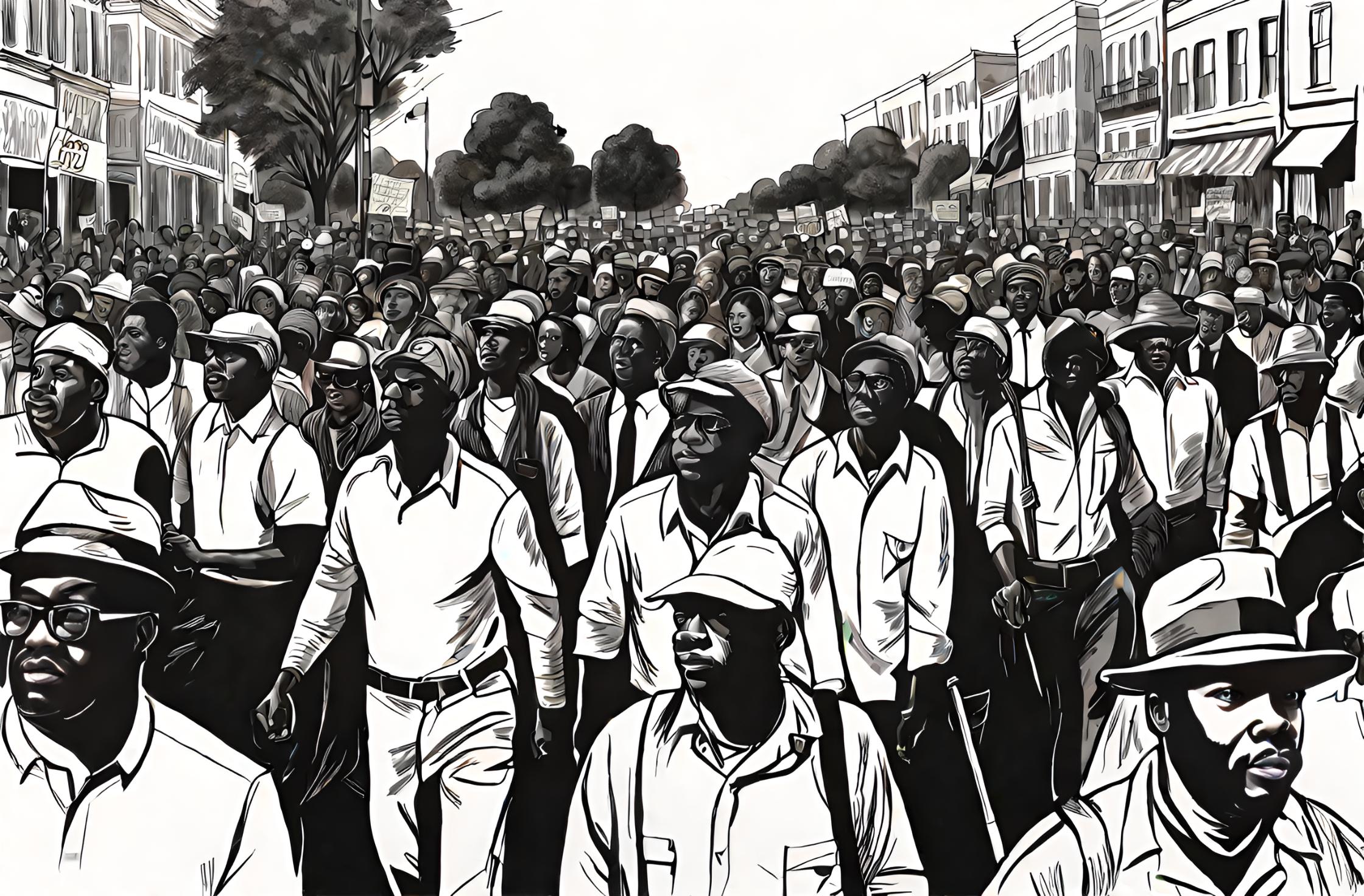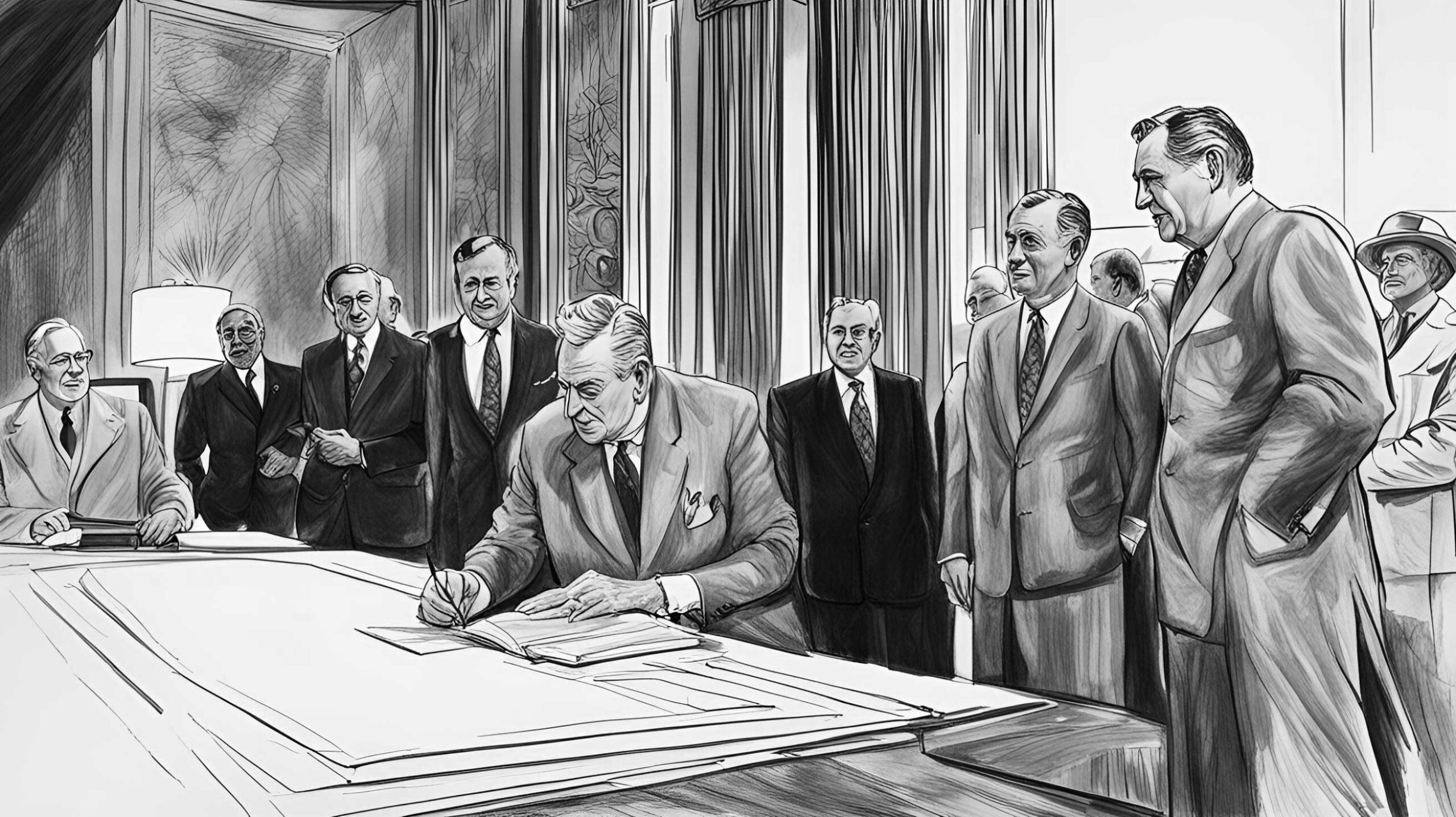Flashback to December 26
American History

1965
A group of 600 demonstrators from Selma, Alabama, march on the capital city of Montgomery
Read moreOn March 7, 1965, an important event took place in Alabama that would go down in history as a turning point in the fight for civil rights. A group of 600 demonstrators from Selma, Alabama, marched on the capital city of Montgomery to protest their disenfranchisement of voting rights and the earlier killing of a black man, Jimmie Lee Jackson, by a state trooper. This event, now known as Bloody Sunday, sparked national outrage and brought attention to the ongoing struggle for racial equality.
The march from Selma to Montgomery was organized by civil rights leaders, including Dr. Martin Luther King Jr. and John Lewis, who aimed to draw attention to the obstacles that African Americans faced when attempting to exercise their right to vote. At the time, discriminatory practices such as voter suppression, poll taxes, and literacy tests were widely used to prevent African Americans from registering to vote. These actions were a clear violation of their constitutional rights.
The catalyst for the march was the tragic death of Jimmie Lee Jackson. On February 18, 1965, Jackson had participated in a peaceful voting rights demonstration in Marion, Alabama. During the protest, state troopers attacked the demonstrators, and in the chaos, Jackson sought refuge in a restaurant. However, he was pursued by a trooper who shot him twice in the abdomen, resulting in his death eight days later. This act of violence further galvanized the civil rights movement and led to the decision to march from Selma to Montgomery.
On the day of the march, the demonstrators assembled at the Brown Chapel African Methodist Episcopal Church in Selma. Their plan was to walk the 54-mile stretch to Montgomery while drawing attention to their cause. However, as they crossed the Edmund Pettus Bridge, they were met with a blockade of state troopers and local law enforcement officers. The troopers ordered the demonstrators to disperse, but they refused and continued moving forward. In response, the troopers used tear gas and brutal force to attack the peaceful protesters, beating them with clubs and whips.
The brutality of Bloody Sunday shocked the nation as news imagery spread across the country, capturing the violence inflicted upon the protesters. This event drew widespread condemnation and put pressure on President Lyndon B. Johnson to push for voting rights legislation. On March 15, just over a week after Bloody Sunday, President Johnson convened a joint session of Congress, where he delivered his historic speech, calling for the immediate passage of the Voting Rights Act. This landmark piece of legislation was signed into law on August 6, 1965, effectively protecting the voting rights of all Americans, regardless of race or color.
The events of Bloody Sunday and the subsequent passage of the Voting Rights Act had a profound impact on the civil rights movement and the fight for equality in America. It demonstrated the power of nonviolent protest and grassroots organizing in advancing social change. The march from Selma to Montgomery remains an enduring symbol of courage, resilience, and the determination to fight against injustice.
The march from Selma to Montgomery on March 7, 1965, was a pivotal event in the civil rights movement. It brought attention to the disenfranchisement of African Americans and the violence they faced when attempting to exercise their right to vote. Bloody Sunday, as it is now known, ultimately led to the passage of the Voting Rights Act, which protected the voting rights of all Americans. This event serves as a reminder of the importance of persistence and peaceful resistance in the face of adversity.
We strive for accuracy. If you see something that doesn't look right, click here to contact us!
Sponsored Content

US forswears armed intervention…
On December 26, 1933,…

Wood-pulp paper first exhibited,…
Experience the historic milestone…

American Revolution: The British…
Experience the pivotal moments…

Harold B Lee, US…
"US Mormon Church leader,…

Maiden voyage of first…
Commodore Cornelius Vanderbilt set…

Federal government took over…
On December 26, 1917,…

